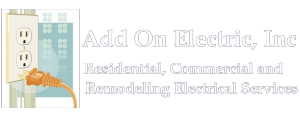You Need to Be Worried About Flickering Home Lights—Here’s Why

Flickering Lights are a common source of worry. Lights in your home can flicker for many different reasons. Some are harmless, while others are dangerous and could start a fire.
The lights in your house may flicker and dim if: Your lightbulbs are not compatible with your dimmers, or your dimmers don’t work with your lightbulbs. To show you what I mean, let’s say you have LED lights that flicker a lot when you turn them down, but they’re not dangerous. LED (light-emitting diode) lights could be the answer. You could change the brand or type of LED light. A lightbulb that doesn’t fit right is flickering. If you change your bulbs, this usually doesn’t cause you to worry. Make sure you let it cool down first.
However, flickering lights could also be caused by a faulty switch or dimmer that needs to be fixed by an electrician. Another problem that could be a problem for you is that your lights flicker all over your house.
Whole House Lights Flickering
The bad weather could interfere with your power supply, or there could be a problem with your utility substation in your area.
However, if the problem doesn’t disappear, it could be because of voltage fluctuations in your home, and you should talk to an electrician.
The voltage in your home may change a little, but flickering lights could signify that something isn’t right. Electronics can be damaged or even start a fire when the voltage suddenly changes from low to high, which can rarely happen.
There may also be a lot of shrinking in the size of your TV picture when your lights flicker.
People who have problems with voltage changes in their homes may worsen as time goes on. However, people who are electricians will be able to figure out what’s going on and fix it.
Home Fire Hazard
there may be a risk of fire if the lights in your home flicker.
Home electrical fires in the United States are thought to cause about 51,000 fires each year, 500 deaths, more than 1,400 injuries, and $1.3 billion in damage. In addition, fires caused by electrical systems are the third most common cause of home structure fires.
The most common causes of electrical fires are problems with wiring or other parts of electric systems, such as loose connections.
Arcing can happen when electricity jumps over gaps in a connection in an outlet or switch. Faulty connections often cause an electrical fire. A single bad connection can put your whole electrical system at risk.
Electrical connections need to be tight so that they don’t cause resistance. However, connections and other wires can get very hot even if the resistance is very low. If it happens near something that can start a fire, this could start it.
A bad connection can happen, for example, if a terminal on a device is loose or if it connects to a circuit breaker that isn’t tight enough, for example. If you think there is a problem with your electricity, you should call an electrician to fix the problem.
Weaved or corroded wires could cause your lights to flicker back and forth between dim and bright without you having to switch them on and off. This is a big problem that needs to be fixed right away by a professional.
People who have old wiring can also make their lights flicker and start fires in their homes. This is because all wires and their insulation can weaken over time, which can happen to them. However, two old wiring systems, knob-and-tube wiring and aluminum wiring are seen as fire hazards by insurance providers.
Also, if your lights flicker all over your house, there could be a problem with your main service cable connection or your meter connection, which have high-power wiring that could catch fire if everything isn’t working right.
Home Appliances
You may have an overloaded circuit if your lights flicker when you use a high-wattage appliance like a washing machine or air conditioner. This means that your appliances consume more electricity than your circuit can provide.
This may not be a big deal if the flickering only happens briefly when the appliance starts up. Large appliances use more electricity when they start up, so this may not be a big deal. However, if you have a well-designed electrical system, some lights may flicker even if they are turned off.
If the flickering doesn’t stop, though, there’s a problem to be fixed. There is a good chance that the problem isn’t with the circuit.
Circuits that are too full can get hot and break down, starting a fire. It could be a sign that an old or broken electrical panel or fuse box cannot handle the power needs of modern tech.
If in Doubt, Get Advice from a Licensed Electrician
The question “Why are the lights flickering?” may not be a big deal if you often wonder about it. However, some causes of flickering lights can be a cause for worry.
While flickering lights are a common problem, they could signify a much bigger and more dangerous problem that could cause a fire. So, is it better to be safe than sorry? Call in a professional electrician for more than a simple fix, like changing a lightbulb. They can do safety inspections, and troubleshooting service calls for you.
